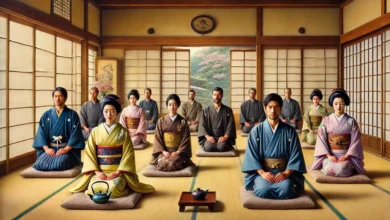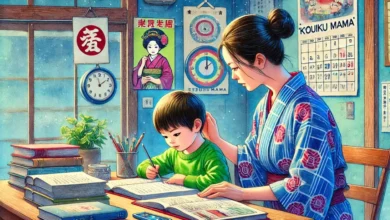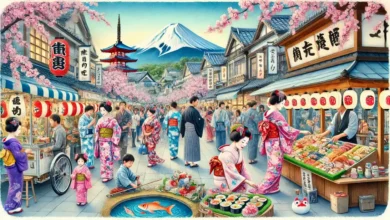Every Expat’s Cultural Struggle in Japan

Living in Japan as an expat is a unique and enriching experience, but it often comes with its own set of challenges. The cultural struggle in Japan can be quite profound, as many expatriates find themselves navigating through a complex web of customs, traditions, and societal expectations. From language barriers to understanding the subtleties of social etiquette, the cultural struggle in Japan is a significant aspect of life for any expat looking to fully immerse themselves in this fascinating country.
Soon, the excitement of being in a new place wears off. You start to feel like a stranger in a country where most people look and act the same. This is one of the biggest challenges that foreigners face when they live in Japan. It’s not easy, but it’s part of the adventure of living abroad.
Reading the Air
In Japan, there’s a saying called “kuuki yomenai”, which means “can’t read the air”. It’s used for people who find it hard to understand unspoken rules or hints. Japanese people often don’t like direct conflict, so they don’t usually show if they’re upset. Instead, they give small signs or use certain words to express their feelings. This can be tricky for foreigners, especially those from Western countries, because they’re not used to this way of communicating. But don’t worry, it’s something that you can get better at with time and practice.

Language Disadvantage
Learning a new language is like climbing a tall mountain. It’s even harder when the language is Japanese, which has three different ways of writing, including the tough Kanji symbols that come from China. Even if you try your best, it can be really hard to get good at Japanese. What makes it more difficult is that people in Japan don’t usually expect foreigners to speak their language.
So, if you try to talk to them, they might answer back in English that isn’t very good. But don’t lose hope! The best way to get better is to take private lessons. Or even better, become friends with a local person who doesn’t speak English. That way, you’ll have to use Japanese to communicate, and you’ll improve faster.
Breaking In
If you’re a foreigner in Japan, especially if you’re young or a student, it’s easy to meet people. There are lots of international parties and events where locals and foreigners can get to know each other, especially in big cities. But finding a group of close friends can be a bit harder.
Sometimes, foreigners feel like they’re seen as something new and different, not as a real part of the group. But don’t worry, it’s not impossible to find a group of friends that you really click with. It might take a year or two, but with time, you can find your own crew in Japan.
Ethic at Work
Working in a Japanese company can be really tough and take up a lot of your time. In Japan, the boss is like a king. Sometimes, people care more about looking busy than actually getting work done. If your boss doesn’t leave, you can’t leave either, even if you’ve finished all your work for the day. It’s a hard rule, but that’s how it is in many Japanese companies.

Jaded Expats
In every city or country, you can find unhappy foreigners, and Japan is no different. The fact is, there are many people from other countries here who probably should have left a long time ago. It’s not hard to find these people. Usually, they start complaining about Japan almost as soon as you meet them. It’s best to stay away from these people, so you don’t start feeling negative too.
Non-verbal communication in Japan
Japanese people value peace and harmony, so they often don’t speak out loudly. Instead, they use their faces, voices, and body language to show what they think. For example, if someone frowns while you’re talking, it might mean they’re not happy with what you’re saying. When you talk to Japanese people, you might notice that they often keep a calm face.
Eye contact is important when you’re talking to someone. But staring into someone’s eyes for a long time isn’t good. This is especially true when you’re with someone who is older or has a higher position than you. It’s all about respect and understanding each other’s feelings.
Sayonara
Living in a different country can be tough. One of the hardest parts is making friends. When you live abroad, you meet lots of new people and make strong friendships. But most of these friends, like you, will eventually go back to their home countries. As time goes by, you might find that you have fewer and fewer friends from other countries.
The fun nights when you stayed up until 3 a.m. singing karaoke start to feel like they happened a long time ago. In English, we say “goodbye” when we leave. But in Japanese, they say “sayonara”, which means “we might not see each other again”. It’s a sad part of living abroad, but it’s also part of the adventure.





